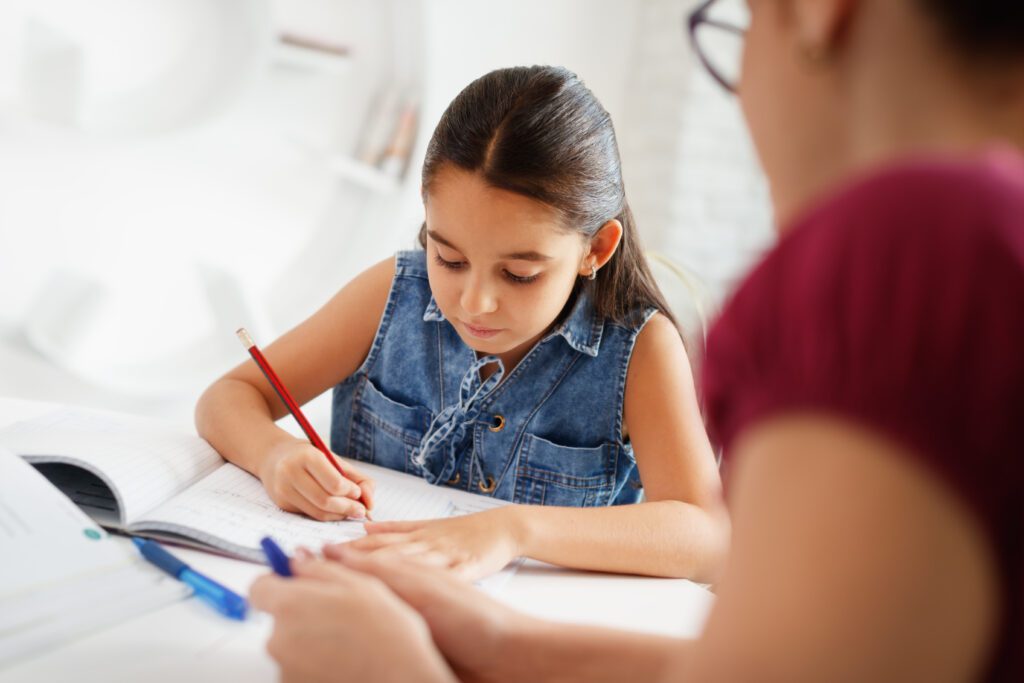Having confidence means being self-assured about your own abilities. It means knowing your strengths and being able to use those strengths in a valuable way.
For many students, facing new material they don’t know, being corrected, and examined on a regular basis can chip away at their self-confidence, causing them to begin questioning their own intelligence and ability to succeed.
Most students go through stages of self-doubt when they’re unable to pick up a class concept or when they perform poorly on a test. What’s important is that students don’t remain in this mindset for long, and continue to believe in themselves.
There are many ways parents can help build students’ confidence in their abilities. Keep reading for more insights:
6 Strategies For Building Confidence In Students
- Encourage Your Child To Focus On Subjects He Or She Is Good At
When a student has low self-confidence, sometimes he or she needs to be reminded about the areas where he or she excels. For instance, if a student struggles with math and does poorly on a test, this student may start to doubt his or her own intelligence. Sitting down and working on a subject he or she is strong in for a while can help bring back that self-confidence.
If you notice your child obsessing over a poor mark, help him or her learn from it and move forward. Remind your child that a subject in school doesn’t define him or her and that it’s extremely hard to excel in every subject. Bring up subjects you struggled with in school to your child. This will remind him or her that it’s okay to not be the best in everything.
- Help Your Child Quit Comparison
One of the worst things a student can do is compare him or herself to others. All students learn at different paces and have their own strong points. If a student compares his or her work to another student who has higher grades, that student may start to lose confidence in his or her own abilities.
If you catch your child talking about how his or her classmates are doing, remind your child to stop comparing his or her work to others. Your child may not realize he or she is doing it in the first place! Once your child breaks this unhealthy habit of self-comparison, he or she will be able to concentrate on what’s most important—learning!
- Promote A Positive Mindset
Many students go into a downward spiral when they receive poor feedback or a bad mark on a test. This makes them believe they aren’t as intelligent as the rest of the class and aren’t going to get very far in their schooling. Feeling this way is common for students who have a negative mindset.
Instead of dwelling on the negatives, help your child maintain a positive mindset. This means seeing setbacks as learning opportunities. It means that even if a student is going through a hard time, he or she knows that things will get better.
Teach your child to maintain a positive mindset by leading by example. If something goes wrong when cooking dinner, say that you’re glad you won’t make the same mistake for when company is over. If you’re having a hard time with work, express how you know things will ease up soon enough—you just have to get through it.
- Remind Your Child Of His Or Her Progression
School can be fast-paced—students have to constantly look forward to the next chapter or test to keep up. There often isn’t time to reflect on accomplishments.Students often forget that they have come so far, and will continue improving as they continue with school.
Remind your child of the type of work he or she was doing years ago, and compare it to the work he or she is doing now. Your child will see the improvement over the years and will understand that he or she is improving and moving forward. This will help your child’s self-confidence and encourage him or her to look forward with optimism.
- Remind Your Child He Or She Isn’t Superhuman
Students of all ages put enormous pressure on themselves to be great at everything. They want to be the best at every subject, have the highest grades, excel in extra-curricular activities, and have a great social life. It’s normal and healthy to want to work hard and have high hopes for oneself. However, having unrealistic expectations often leads to disappointment and lowered self-esteem. It’s important that students know what their limits are so they don’t feel down if they are facing challenges at school.
It’s possible that your child may not realize he or she is putting this pressure on him or herself. Talk to your child about what realistic goals are and work with him or her to achieve them in a healthy way.
Help keep the school workload in perspective by reminding your child he or she isn’t superhuman. There are only 24 hours in the day and no one can perform at 100% each and every day. Remind your child that self-care is incredibly important and help him or her relax with a board game or walk around the neighbourhood.
- Recognize His or Her Value Outside Of School
It’s very easy for students to get tunnel vision during the school year. They think about school and almost nothing else. They forget about the value they bring to other areas like relationships with friends and family.
If your child’s confidence is suffering, take time to recognize how valuable he or she is in areas unrelated to school. Talk about your child’s positive personality traits that may not be acknowledged in the classroom. Traits like emotional intelligence are rarely concentrated on in a classroom setting. Tell your child about how much of a difference he or she makes in other people’s lives! Once your child sees his or her value in areas unrelated to school, your child will be less inclined to seek confidence through grades.
Related Resources
Motivating Children To Do Their Best: Tips For Unmotivated Learners







